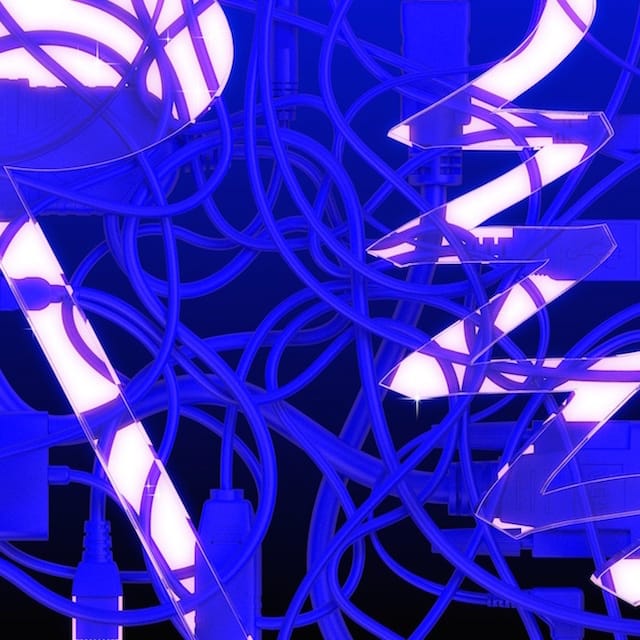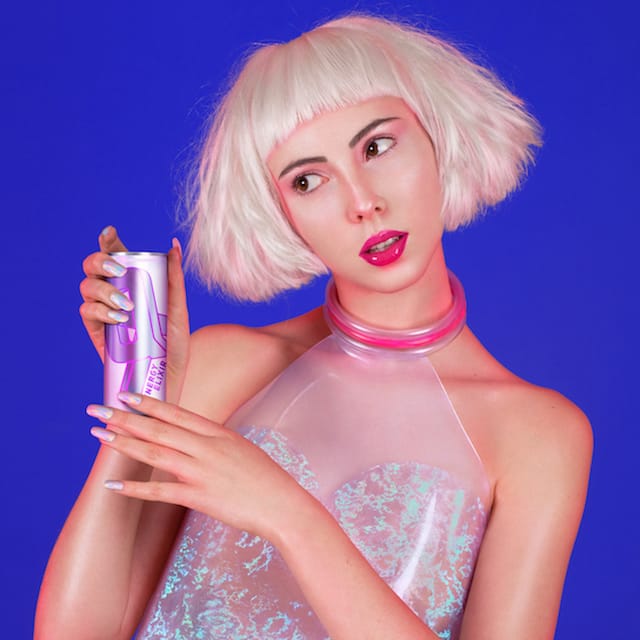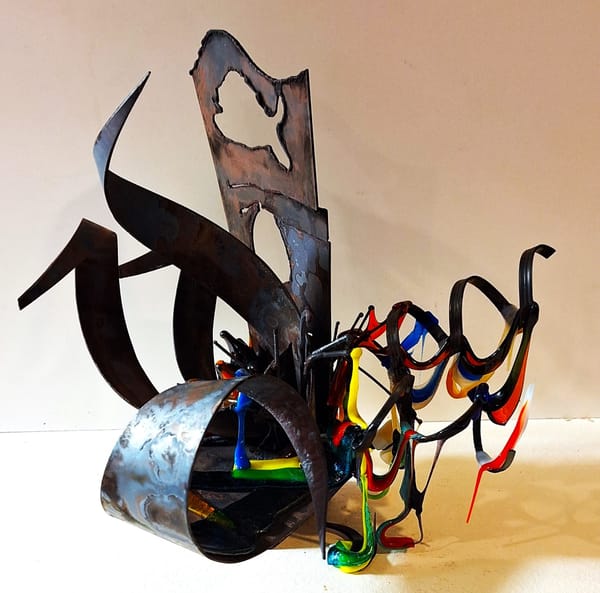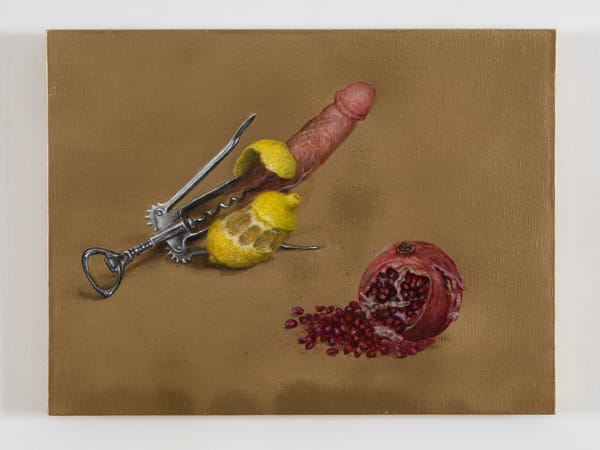Chirpy Cartoons from Ironyland: PC Music Volume 1
Since August 2013, the British techno label PC Music has been regularly releasing a large number of definitely strange, possibly satiric, stunningly original songs online.

Since August 2013, the British techno label PC Music has been regularly releasing a large number of definitely strange, possibly satiric, stunningly original songs online. The label, founded by producer A.G. Cook, currently represents seventeen artists including Cook, but they all operate within the same stylistic borders; it’s less a collection of individual musicians and more a larger unified group. Based on three or four viral hit singles last year, most notably Cook’s “Beautiful” and QT’s “Hey QT”, they’ve earned quite the buzz if not acclaim among critics, and their close associate Sophie, who frequently works with artists on the label despite never having joined himself, has scored prestigious collaborations with Madonna and Charli XCX. Their very first official album, called PC Music Volume 1, came out earlier this month. Uneven and slight though it may be, I hope it sells like wildfire–the big dispute is whether they make real pop music or whether they reappropriate pop usages for art-related purposes, a dilemma easily resolved by measuring their sales. At this point it just isn’t clear, and I really want to know.
PC Music advertise themselves as the obverse of the kind of modern electronic dance music usually heard on the radio or in the club–tender where EDM is tough, vulnerable where EDM is abrasive, slick and streamlined where your quintessential EDM synthesizer crunches up a storm. Angular, spare, robotized, rubberized, they glaze their music over with a tacky plastic surface while filtering in dinky bleeps, mechanized sighs, and squealing kiddie voices sillier than even the potential offspring of Alvin Chipmunk and Hello Kitty. Their songs are concise and miniature, with dubstep’s noisy assault replaced by sugary synthesizer confetti. Their lyrics pepper fairly trite depictions of young love with references to various corporate products and technological toys, with their language couched in terms of work or consumption rather than affection. Several of the artists signed to PC Music cultivate imagined alter egos (e.g. QT, a pop star with a fictional backstory whose music supposedly markets a fictional energy drink), where others stay anonymous.
Whether designed as a celebration of pop artifice, a critique of millennial internet culture, or an attempt to transmute the faceless, functional qualities of dance music into something more self-conscious by means of studied cartoon, their cutesy banality, beholden both to American teenpop and Japanese kawaii fashion, has a canny archness to it, yet at the same time it’s not entirely insincere. Shiny polish, tidy makeup, and rank perfume soaks them; they take their cocktails complete with maraschino cherry and bring to mind the gauzy taste of strawberry vodka. Is it any wonder critics can’t categorize these troublemakers? Nobody has tested the fine line between irony, double irony, triple irony, and quadruple-decker irony cake with whipped cream so brilliantly since Lana Del Rey.
The question isn’t whether they have irony, as irony is a given with a style this extreme. The question is whether their irony succeeds–whether the end result functions as a working critique of its own aesthetic and corresponding cultural precedents/influences, or whether the critique still qualifies as yet another example of the straight stuff that enables it, or whether the critique disables the music’s accessibility potential, or whether the aesthetic is worth critiquing at all, or whether the aesthetic’s pungency sinks the critique and renders its irony irrelevant. On the plus side, their blocky, tinkly electrobeats fit together rather nicely, and the attendant helium-drinking nymphets providing vocals often sound friendly and adorable, while on the minus side, their songs are so simple that they typically reduce to smaller proportions than will satisfy, and those same nymphets just as often assume mannered accents even faker than the patently disingenuous platitudes they sing.
Sometimes their carefully contrived synthpieces feel too abstract for the pleasure to kick in, but sometimes everything clicks just fine. Thanks to the tight minimalism/miniaturism of the music, the apparent contradictions in its aesthetic remain, wink-wink, ambiguous, which is good news for those presently debating the merits of the PC Music concept, because it means academic analysis won’t offer resolution; in the end, either you like the way it sounds or you don’t. As a proud pop connoisseur accustomed to hearing through artificial surface and for whom pixelated pixie dust represents not profound metaphysical statement but cool textural invention, I quite enjoy PC Music Volume 1. And since I demand total visionary craft in addition to clever theory from my pop music, I also find it somewhat lacking in substance.
Clocking in at just under a half hour, PC Music Volume 1 speeds by quickly, and the compacted length simultaneously sharpens and limits its impact. Each neat little ditty zips modestly through its verse-chorus arrangement, repeats a few times, and then proceeds mechanically in sequence to the next computerized ballad. Roughly speaking, the songs on PC Music Volume 1 divide into two types: cheerful, tuneful pop vehicles that you can actually hum, generally with romantic lyrics (shallow and littered with consumer products they may be–“Tell me if you want to see me play with my hair on a TV”, or “Now I’ve saved you as a picture on my phone”–but romance is nevertheless the theme), and darker, thornier contraptions where the keyboards either eschew melody entirely or remain minimal throughout the song while the vocals, spoken rather than sung, get chopped, screwed, and inverted.

A brutal symbolic rendering of conflict and broken consent, the label’s most fully realized work of art as of now belongs to the latter variety: “Don’t Wanna/Let’s Do It”, in which two high-pitched voices shriek “Let’s do it” and “I don’t wanna do it” at each other for two minutes over a buzzy, ominous synth loop. But it’s the former category that dominates, and that embodies the album’s basic style. Especially on A.G. Cook’s “Beautiful”, Danny L Harle’s “In My Dreams”, and A.G. Cook & Hannah Diamond’s “Keri Baby”, the catchiest, glitziest, prettiest, most grotesque songs here by far, there’s a touching sweetness to the stuff, the tender feeling of hearing a kindly digital sprite reaching out and saying something really nice to you. The cold electronic surface is hardly impersonal; instead, like the chirpy voices themselves, it evokes a vulnerable period of adolescence. It insists that teenagers hooked on social media and the gadgets that go along with it are every bit as capable of love as anybody else, which doesn’t mean it exempts them from satire.
Skrillex has recorded music like this, especially in his EP days, but it’s different: where the dubstep king always provides massive slices of hookery to launch his naiad vocalists into club overdrive, the producers at PC Music pursue dinkiness so relentlessly that their music ends up sounding rather small. The accents curdle, too. But otherwise their cuteness can really make you go awwwwww.
Since PC Music Volume 1 just came out, it’s unclear whether the label’s masterminds plan on hitting the radio or staying in their novelty niche. But should conquering Clubtopia or even Festivaltopia prove a possibility, there exists a creative option beyond and above the fray of infinite ironic convolution: full-fledged pop music that contains the plethora of ambiguity within. Right now, PC Music is altogether too simplistic and abstract to qualify, but I believe they have it in them, and hope their album succeeds commercially. I’d like to encourage Cook and his labelmates to contemplate the Pet Shop Boys, whose cerebral, satiric electrodisco masterpieces have been topping the charts for thirty years. It would be a pleasure to hear the musicians behind PC Music Volume 1 reach a similar level of clever, moving, multifaceted sophistication.
PC Music Volume 1 and Hey QT are available from Amazon and other online retailers.





